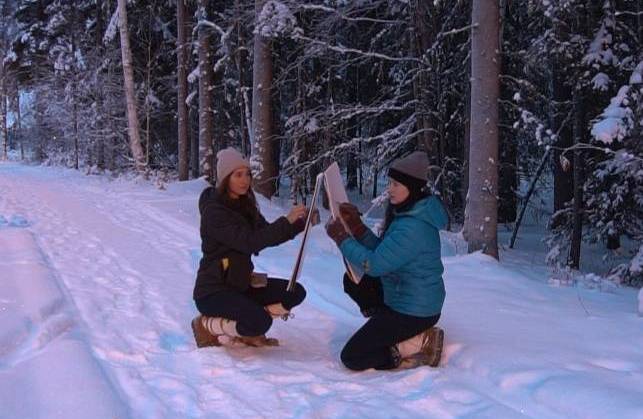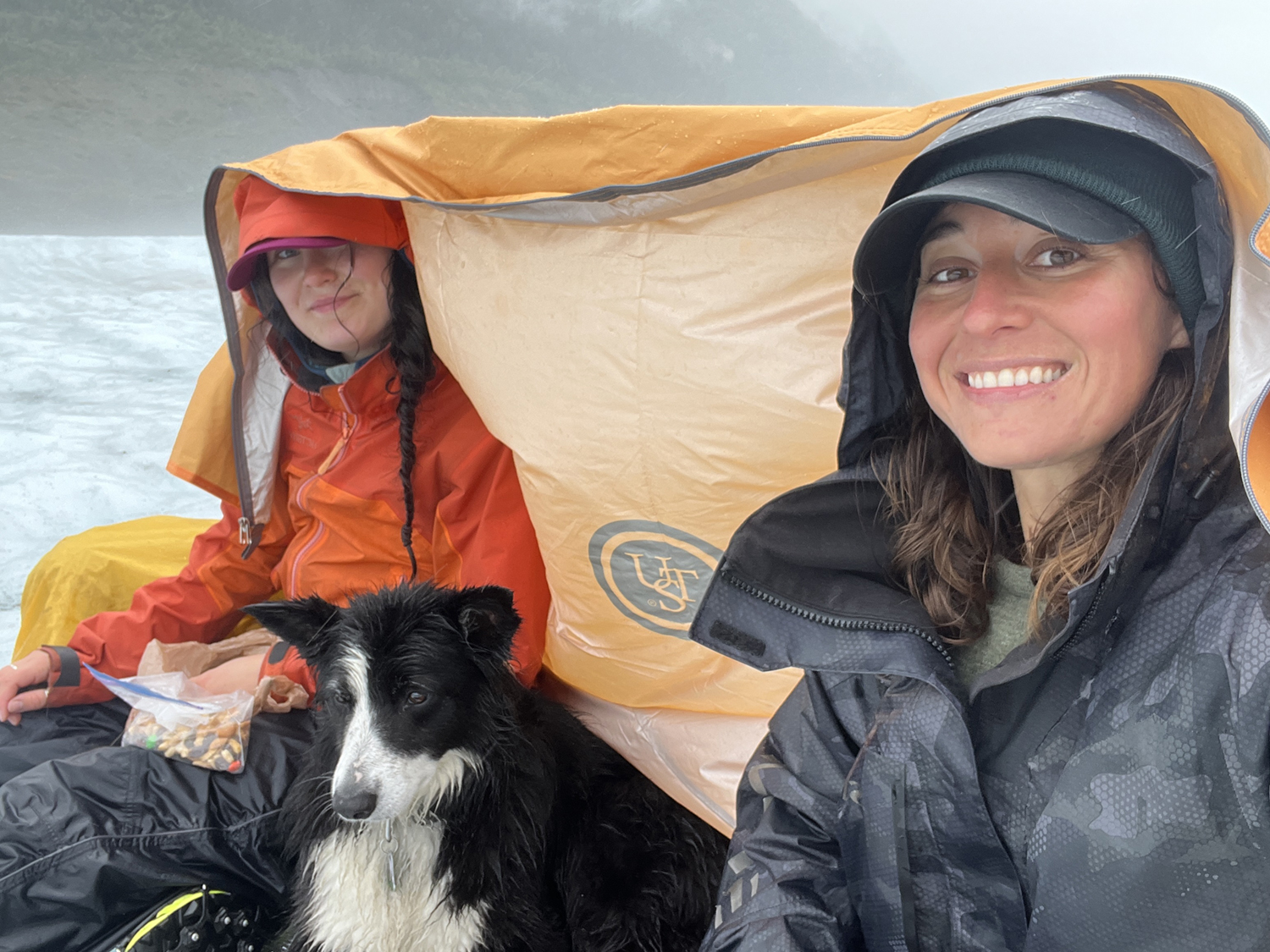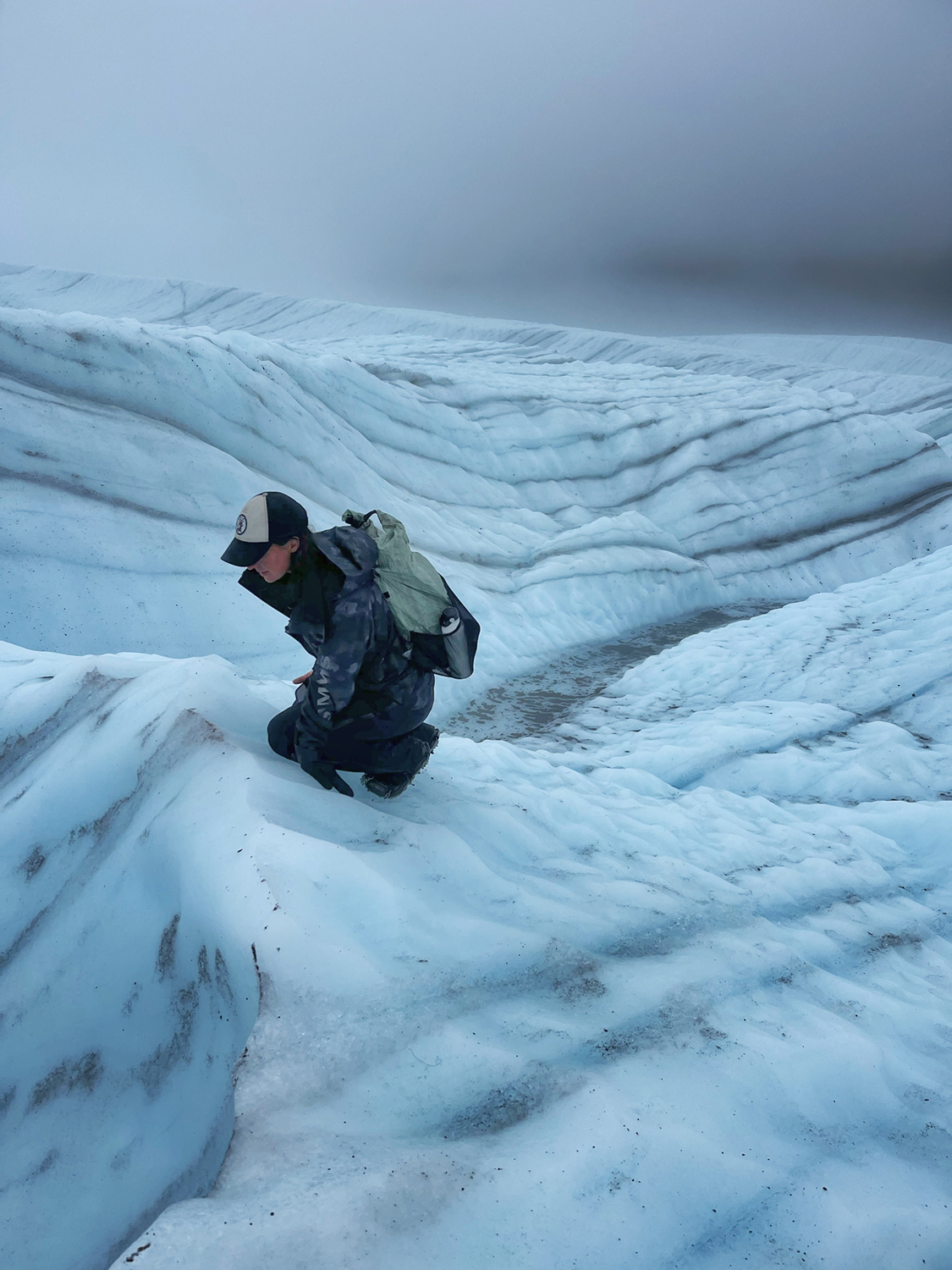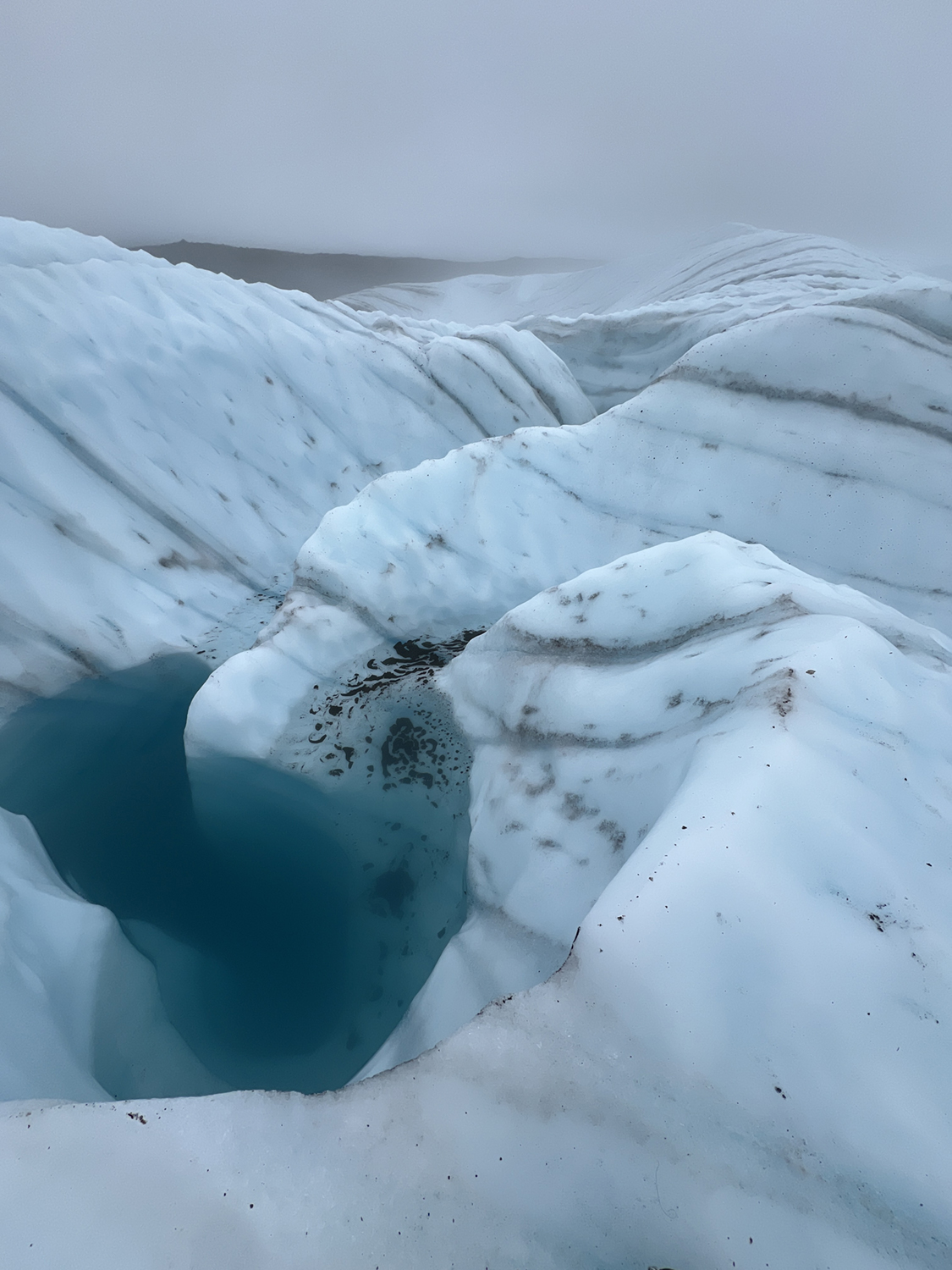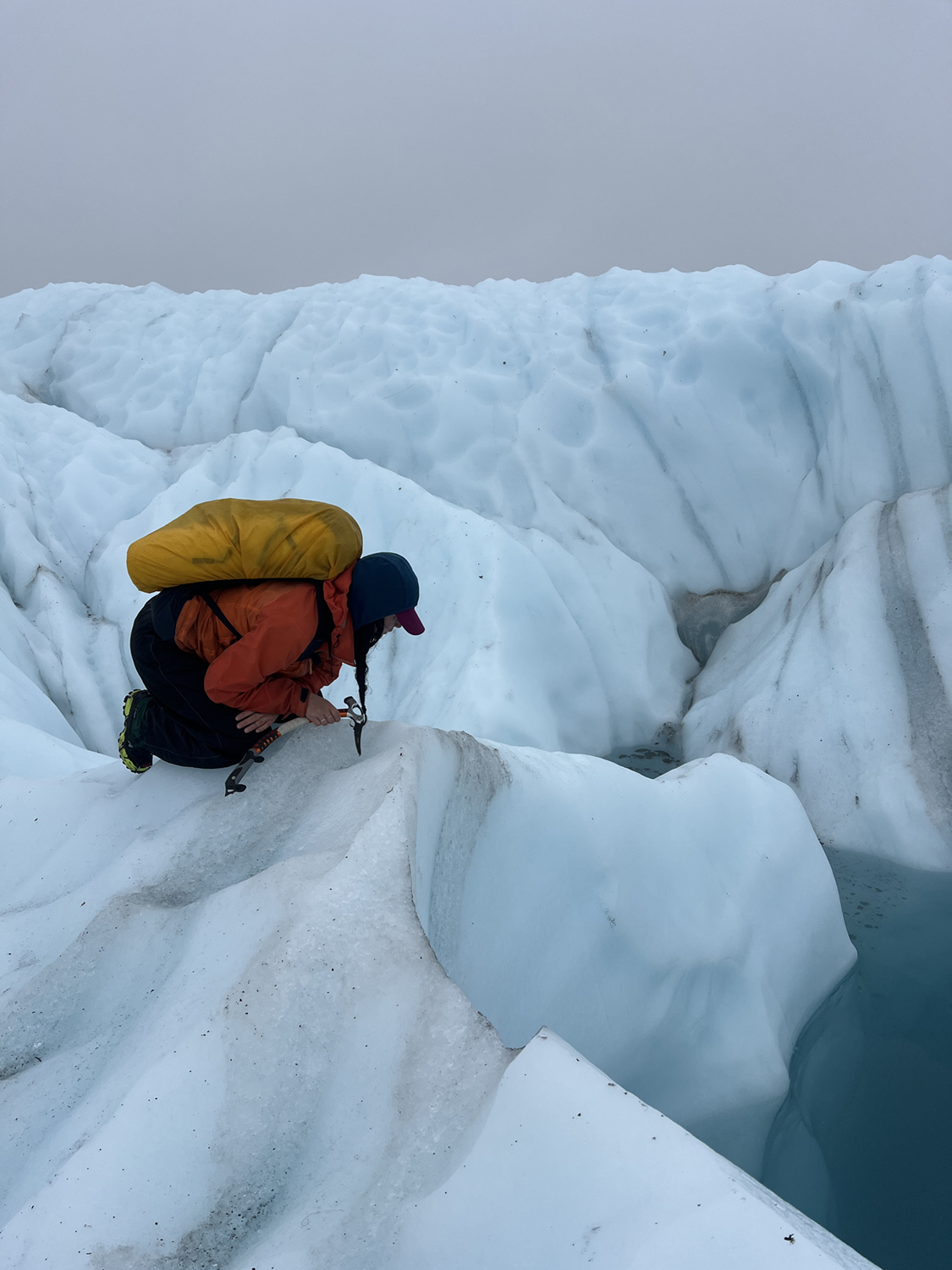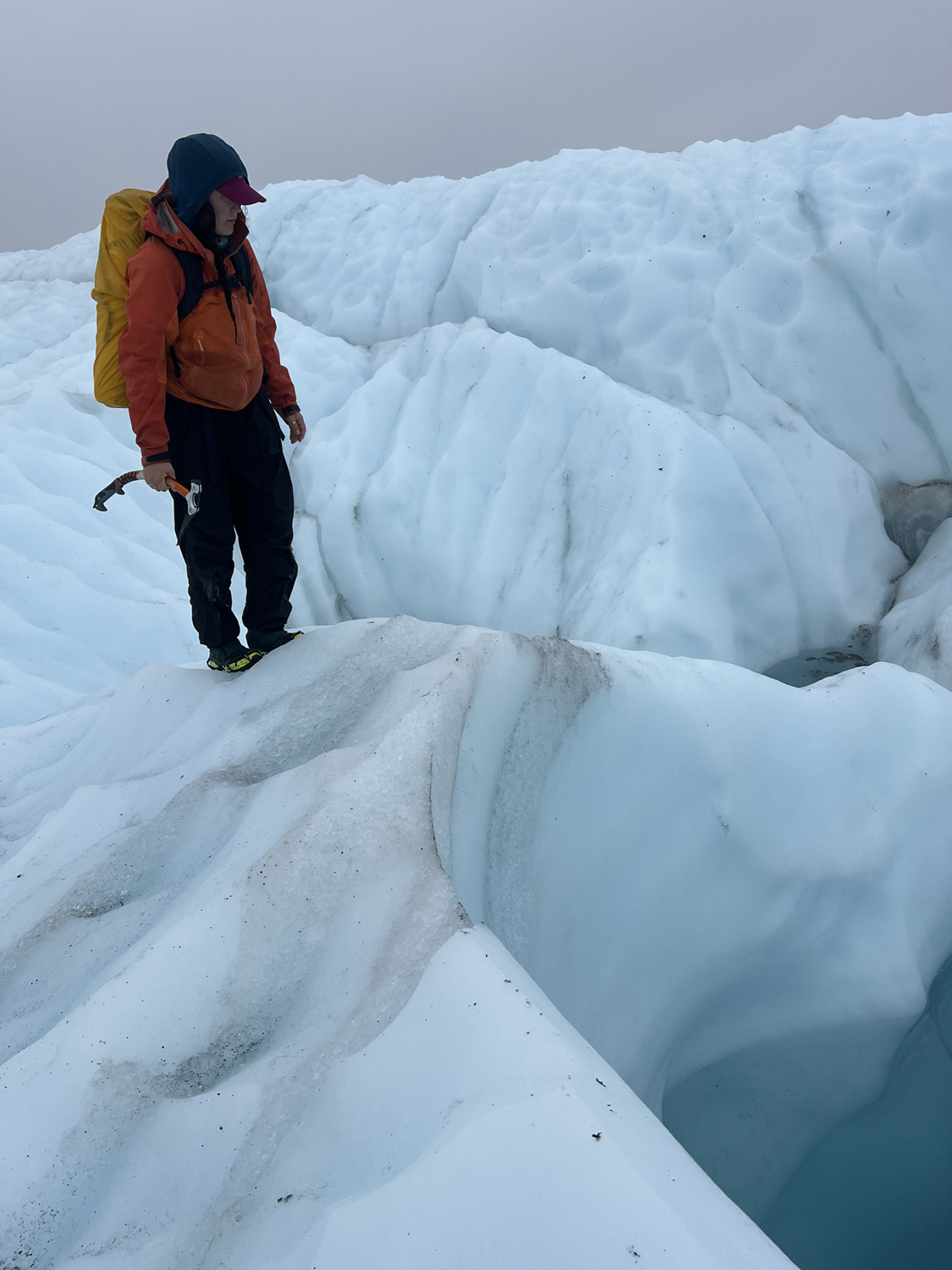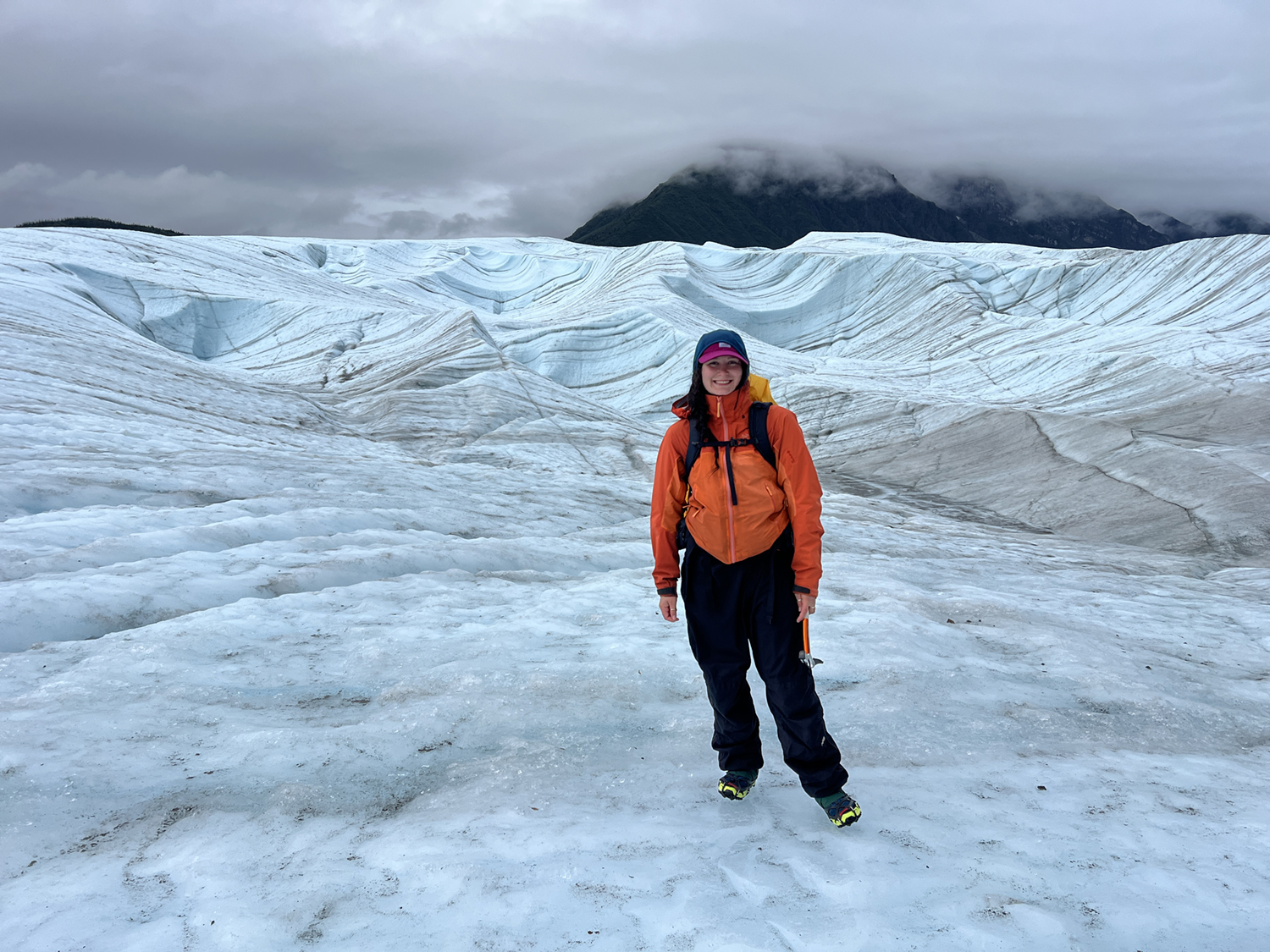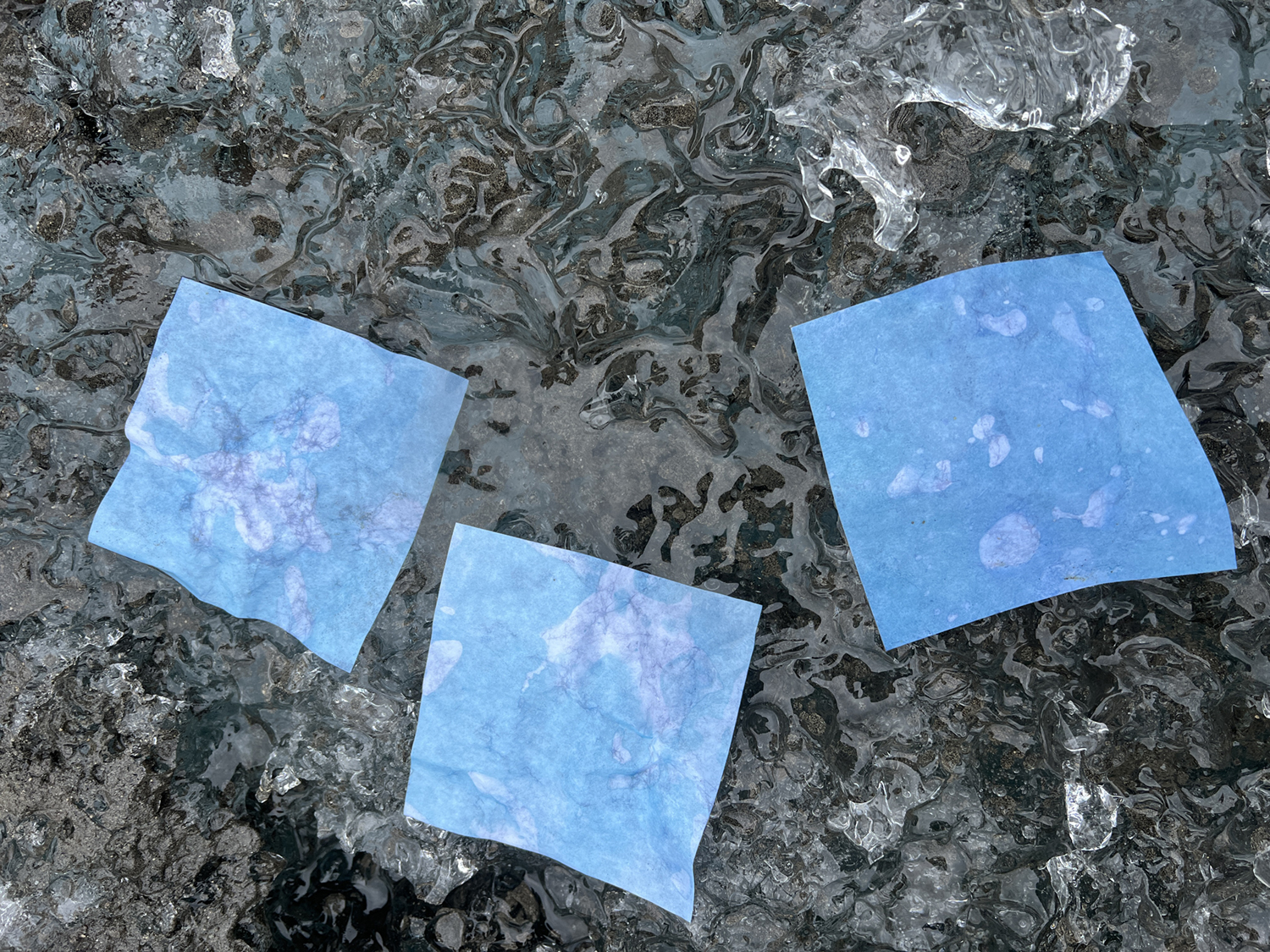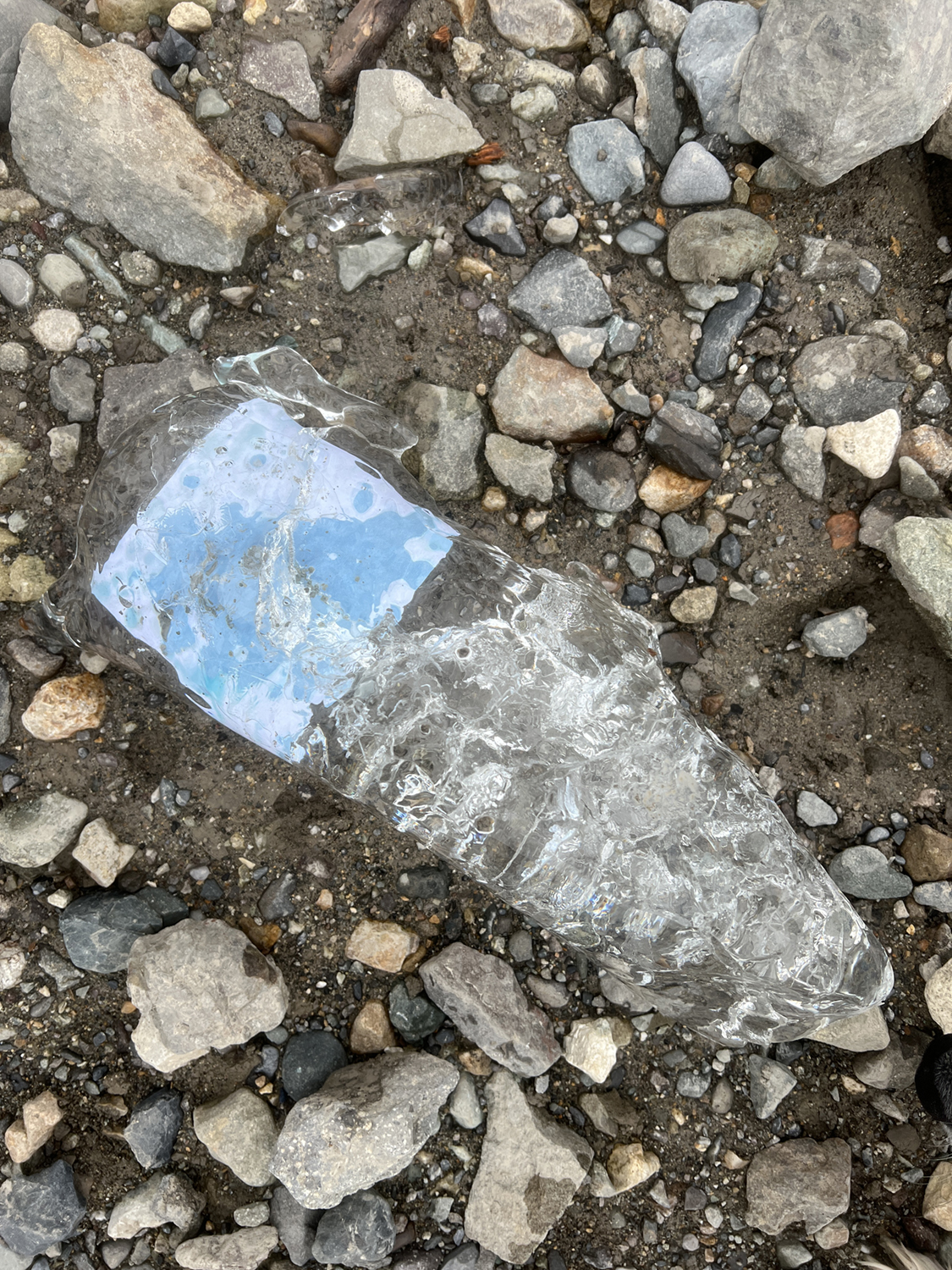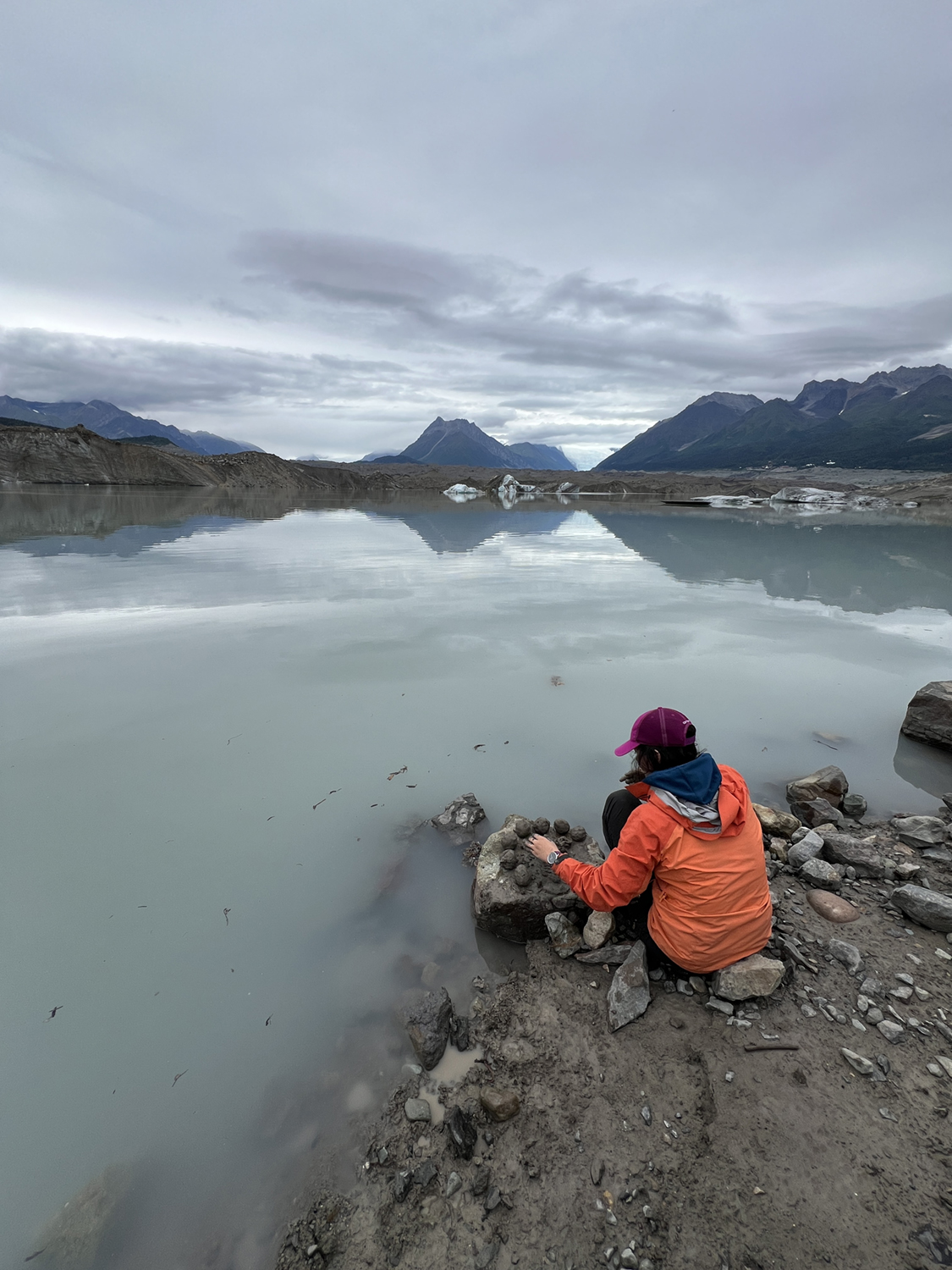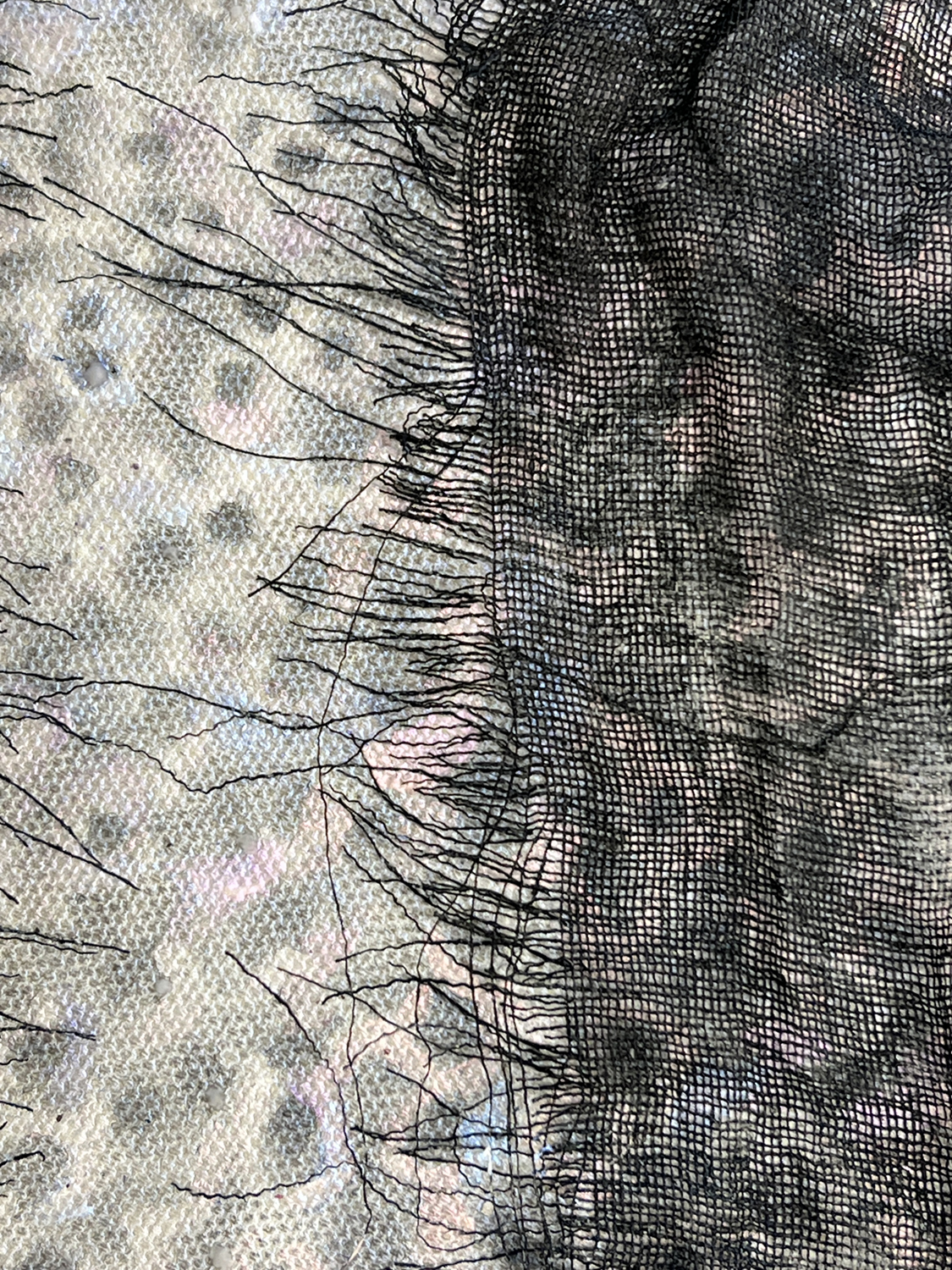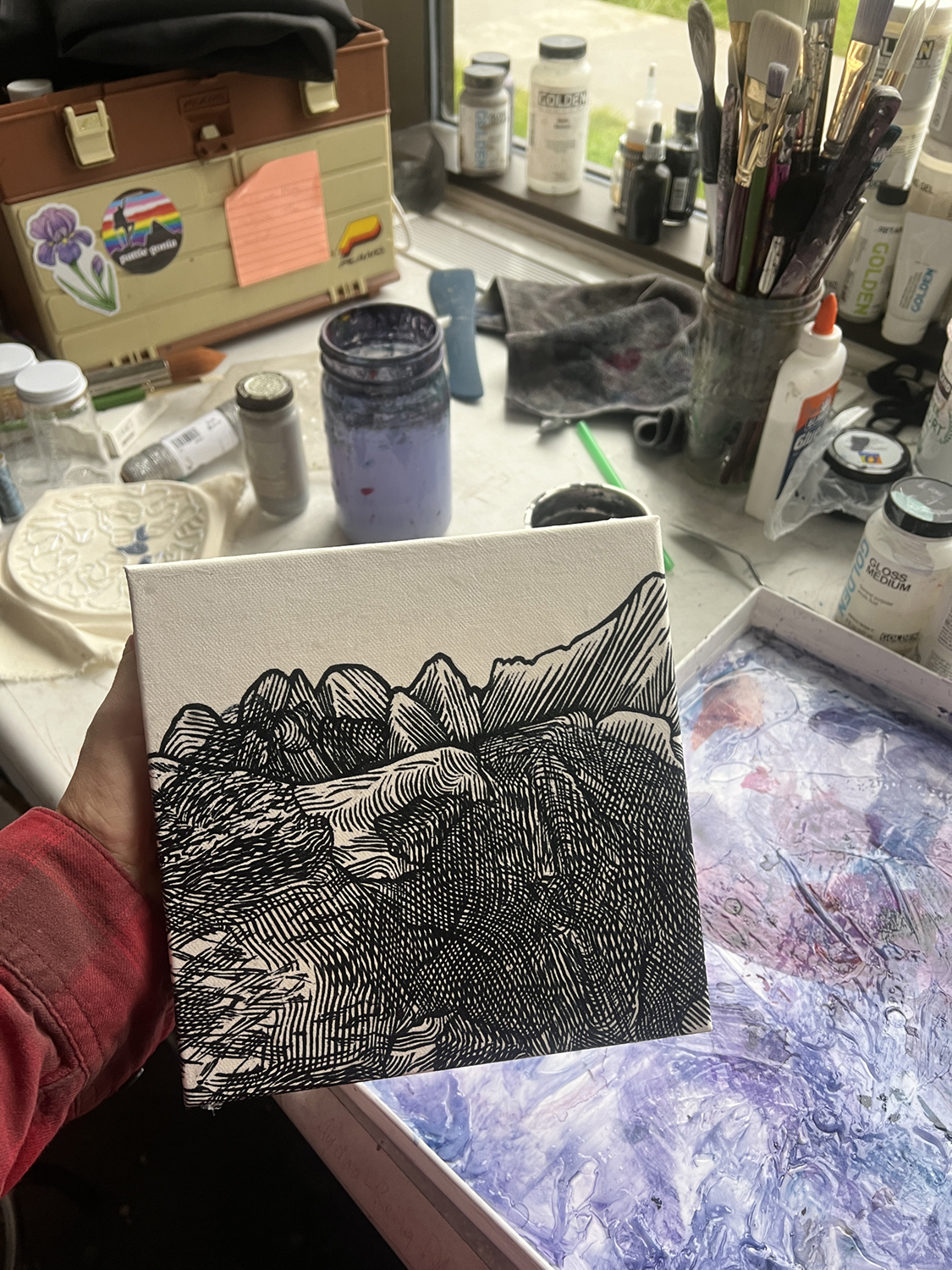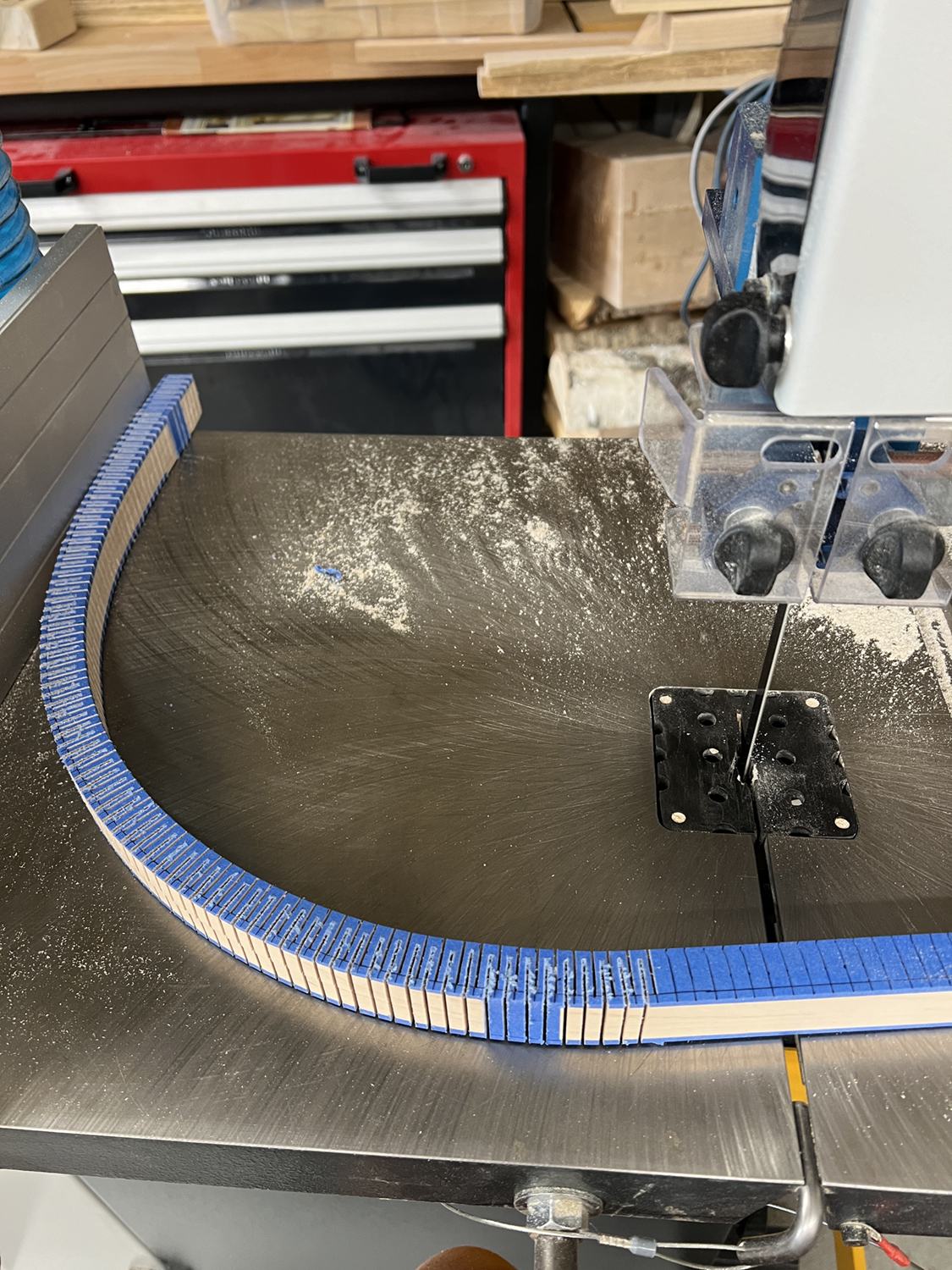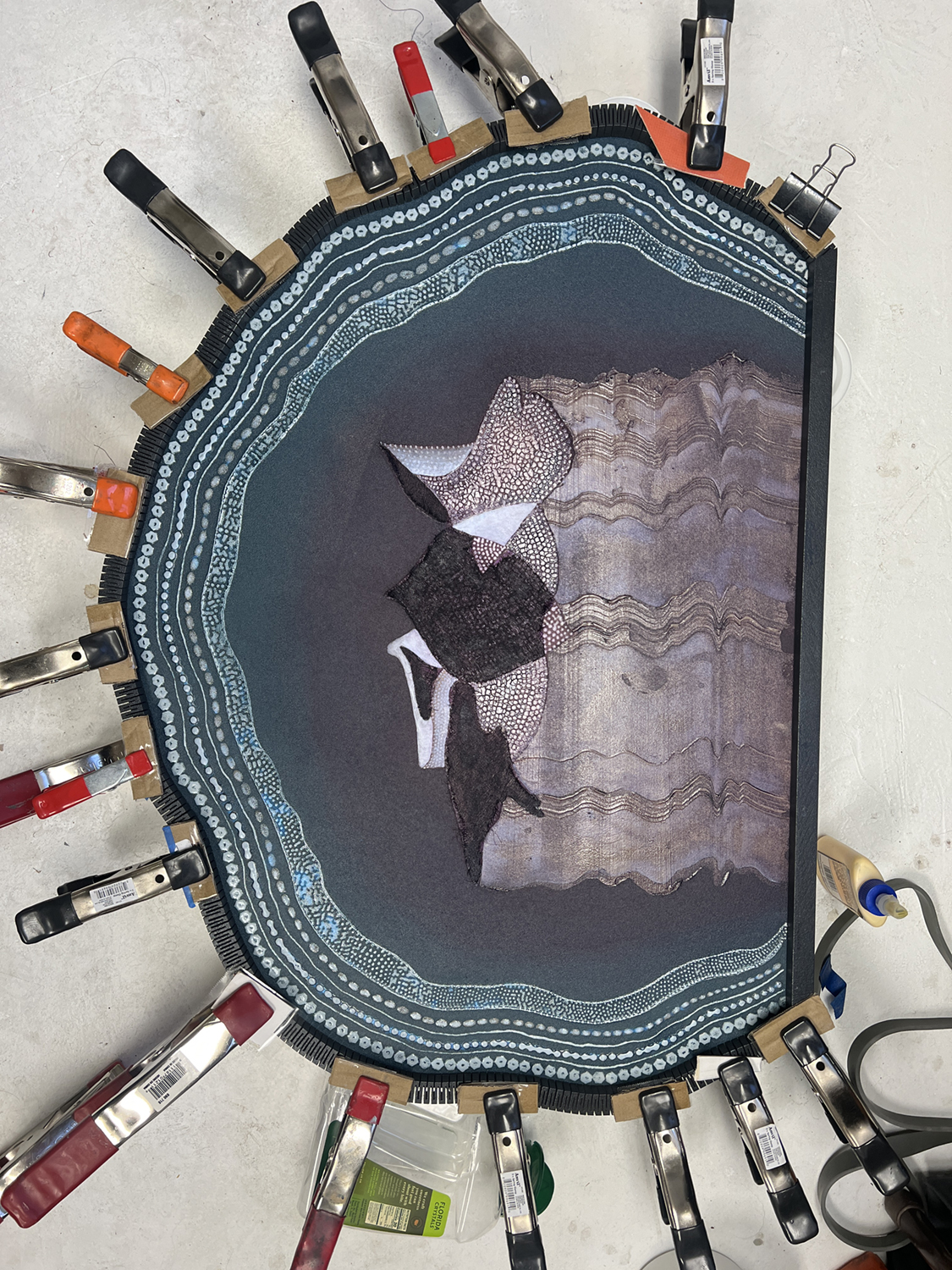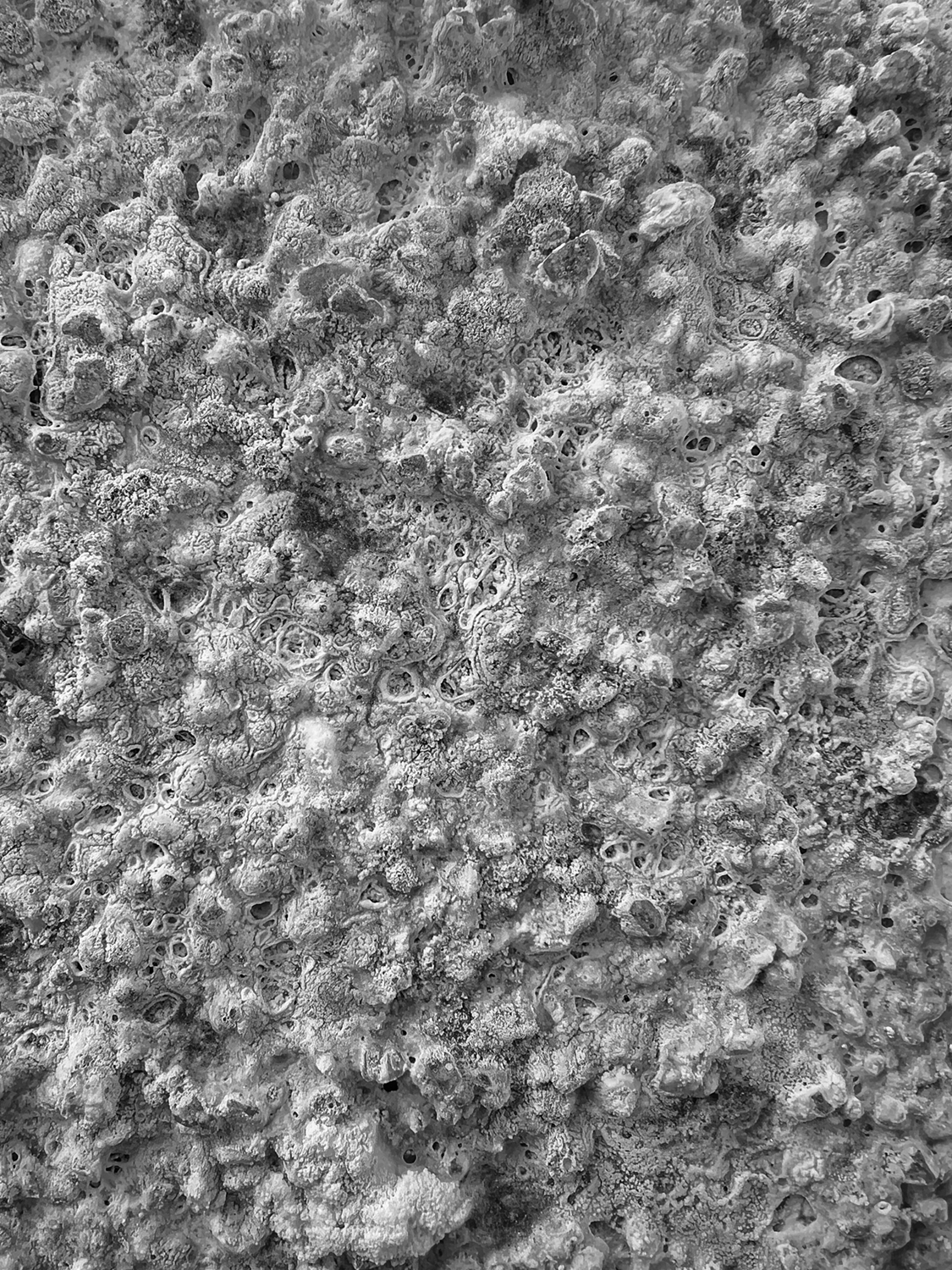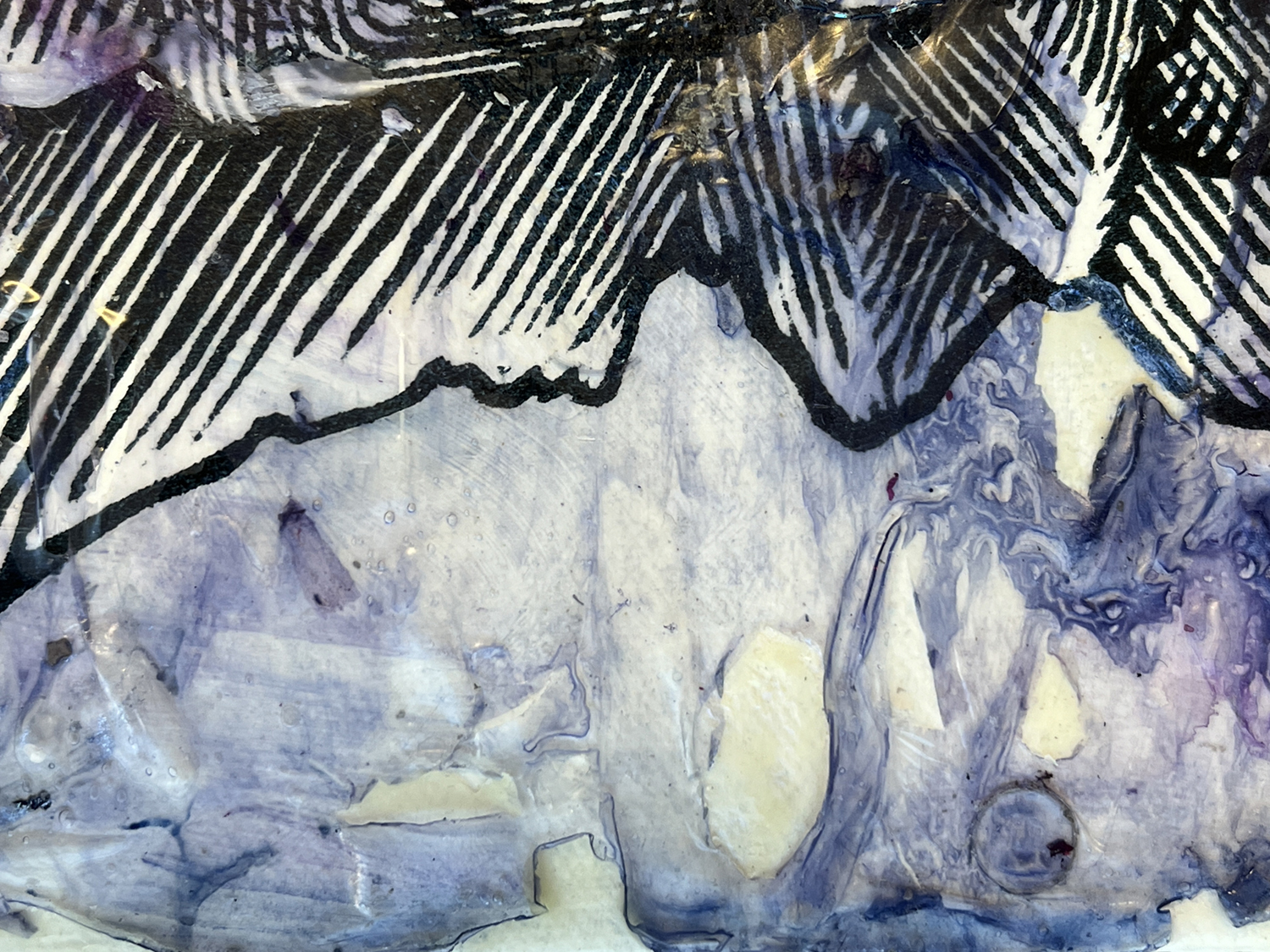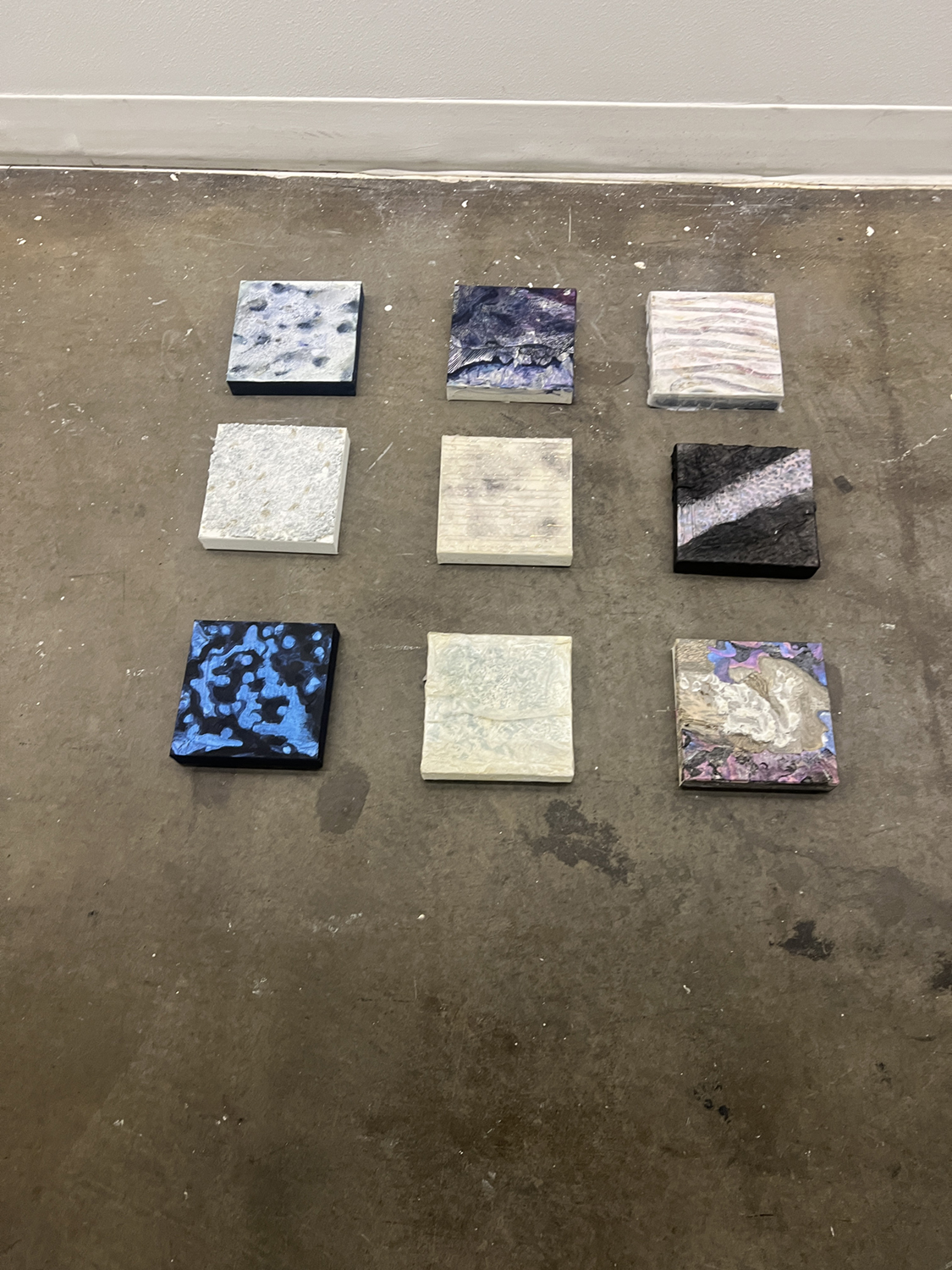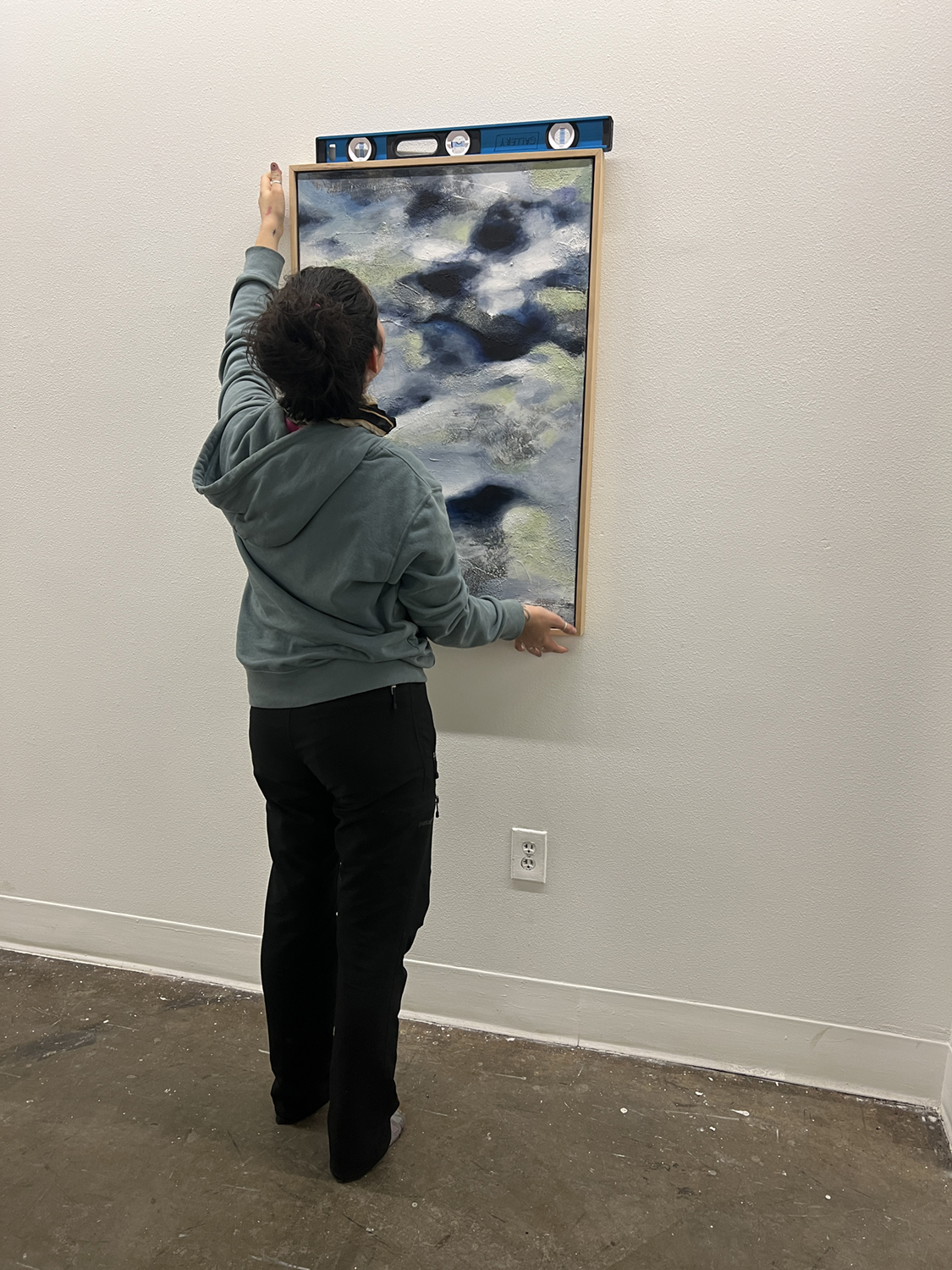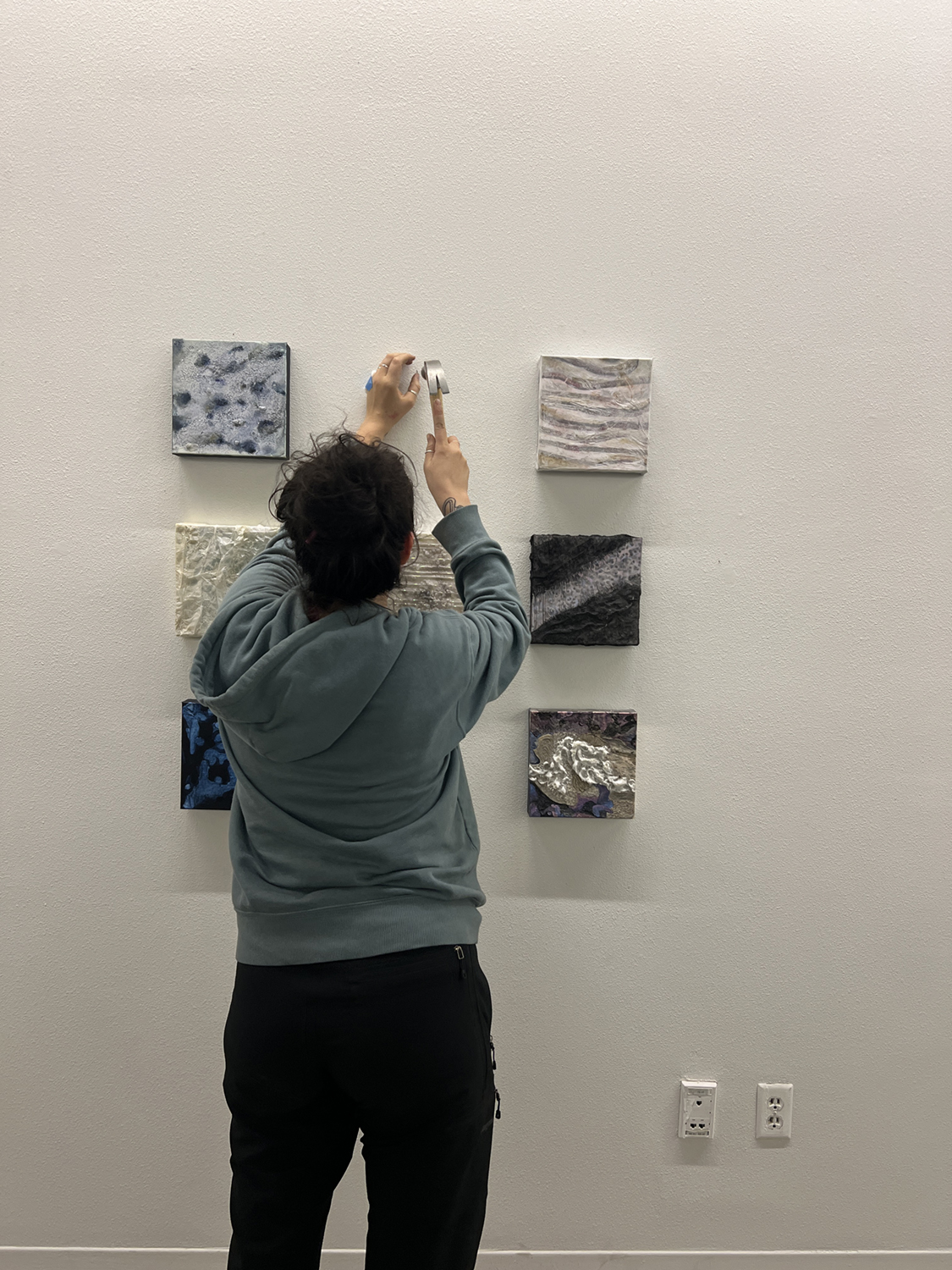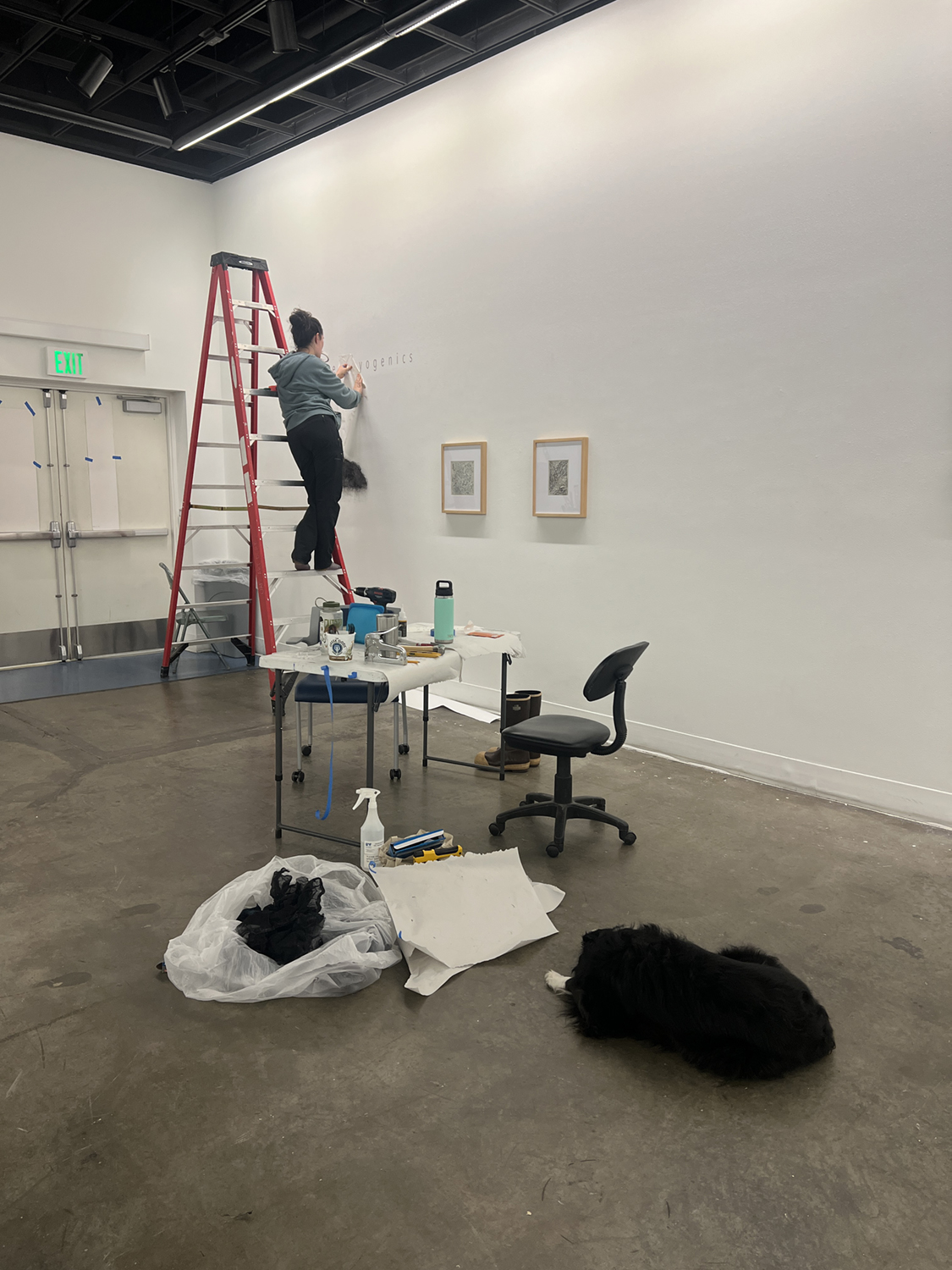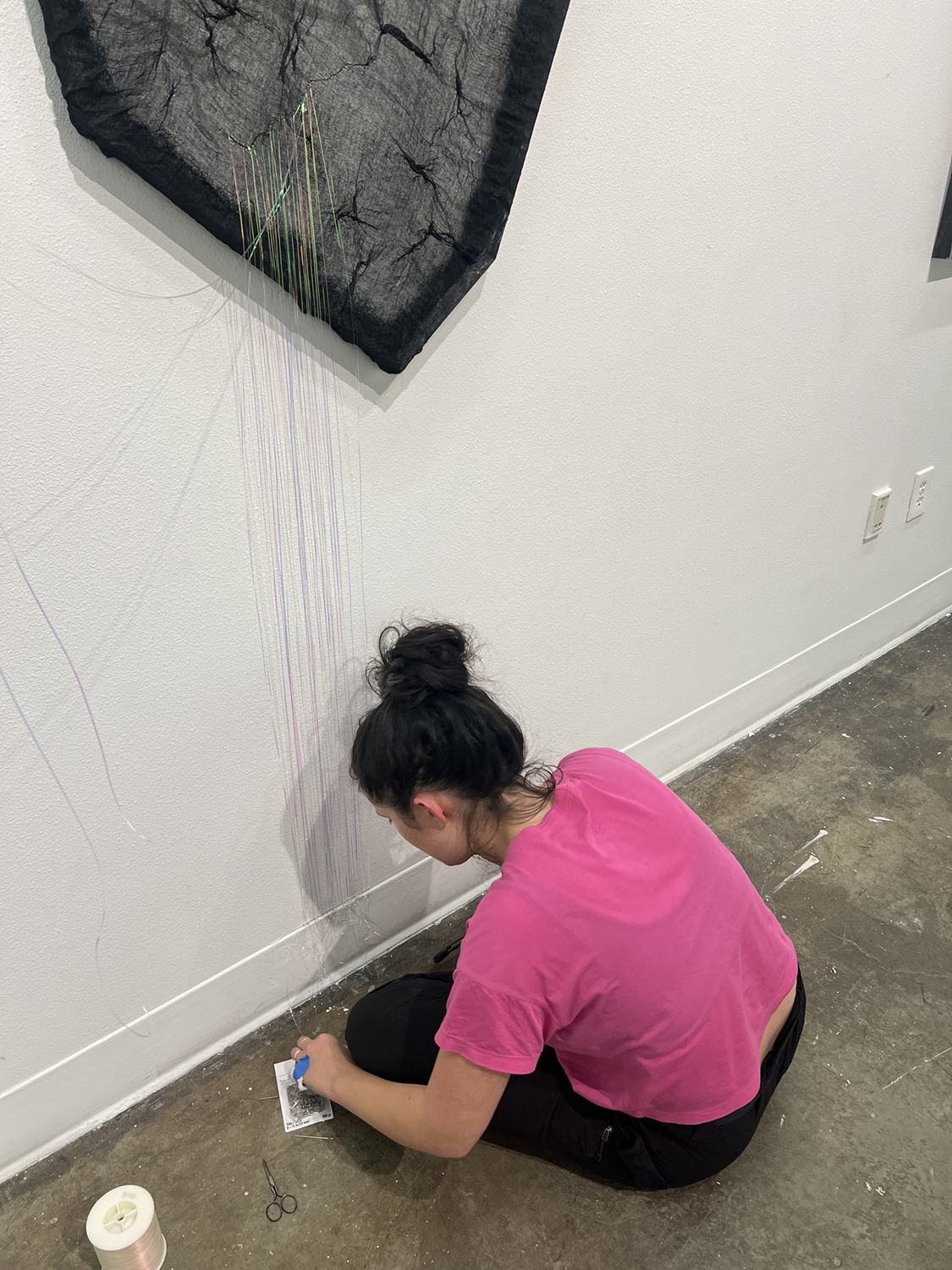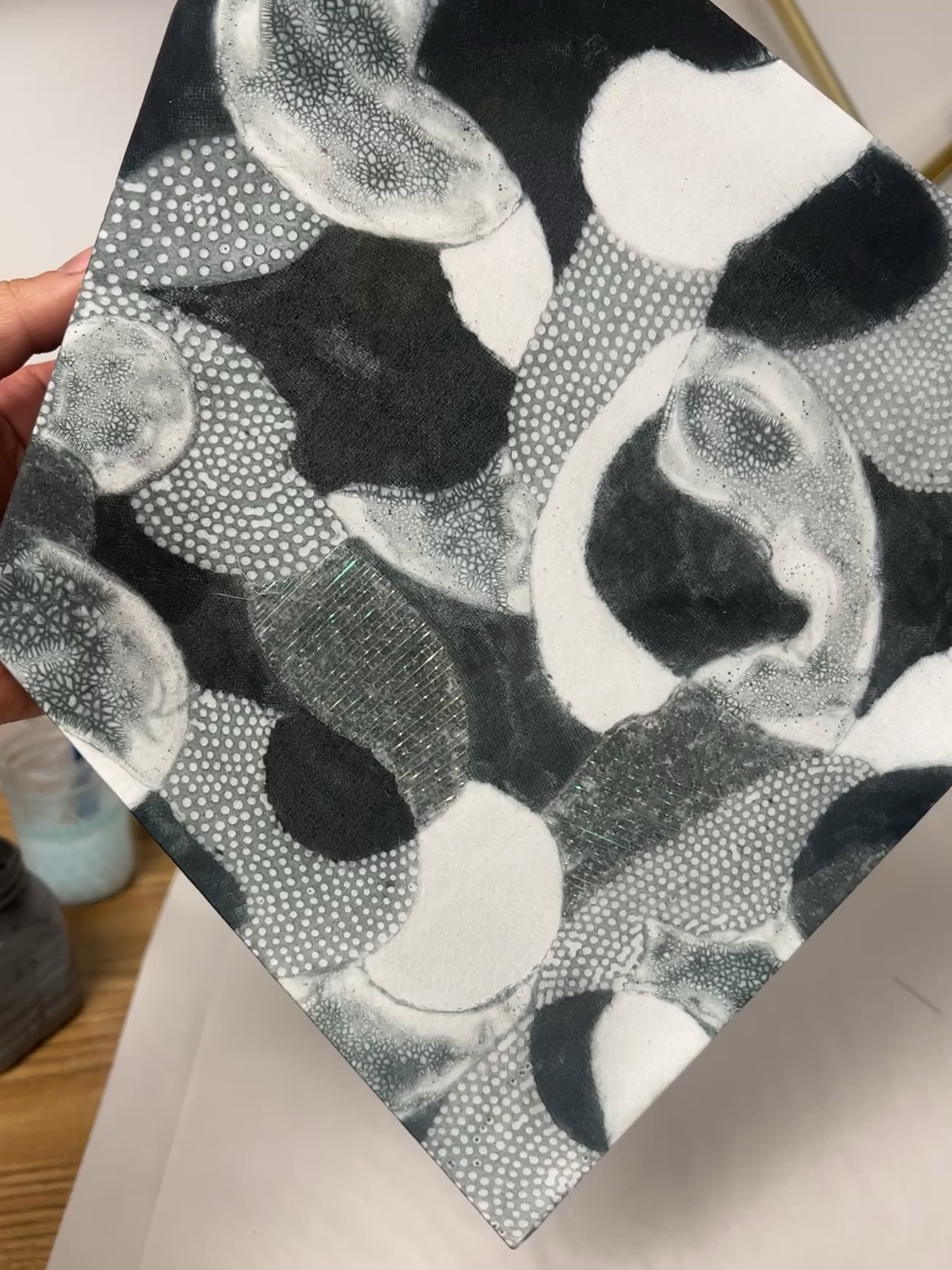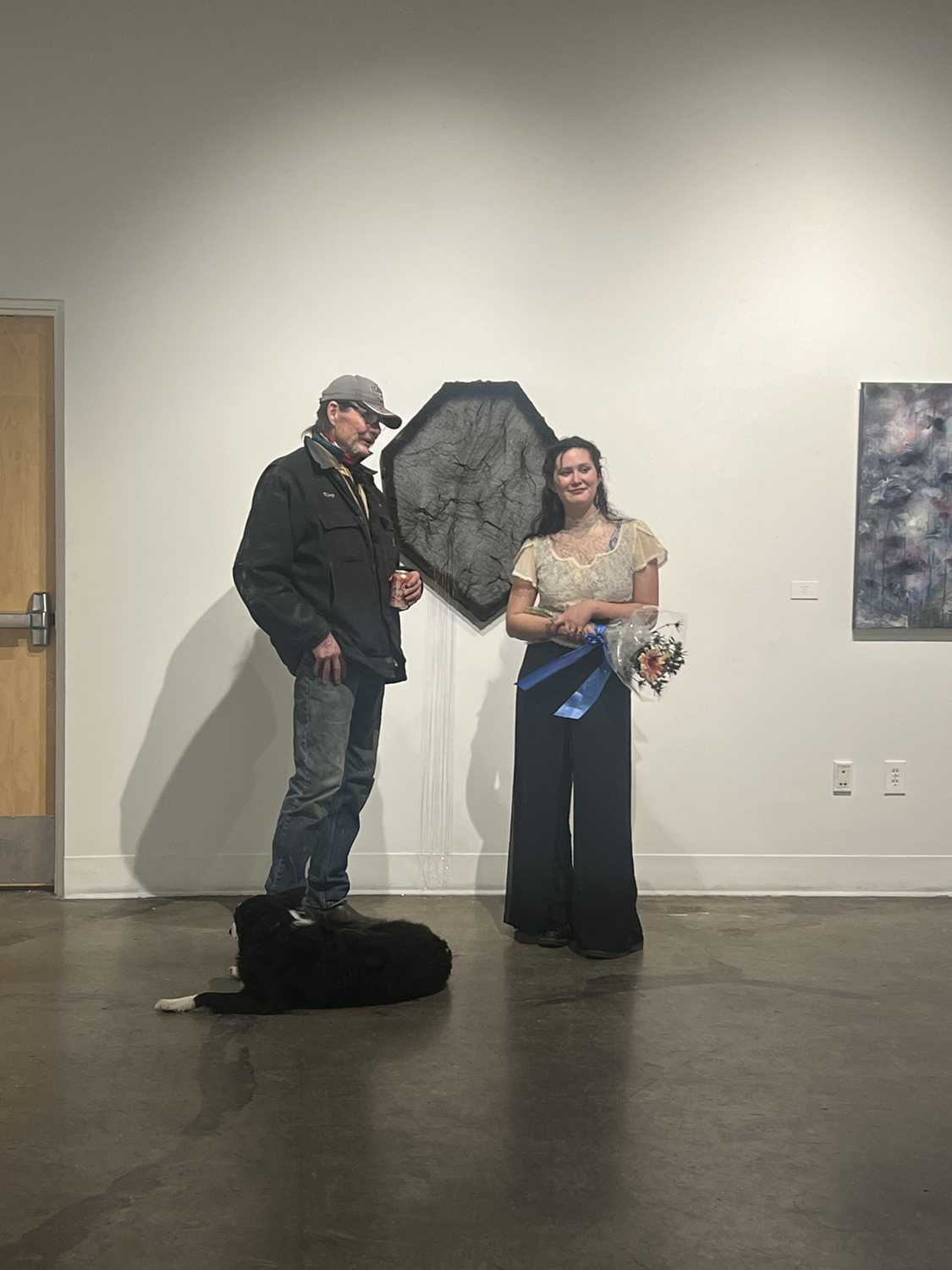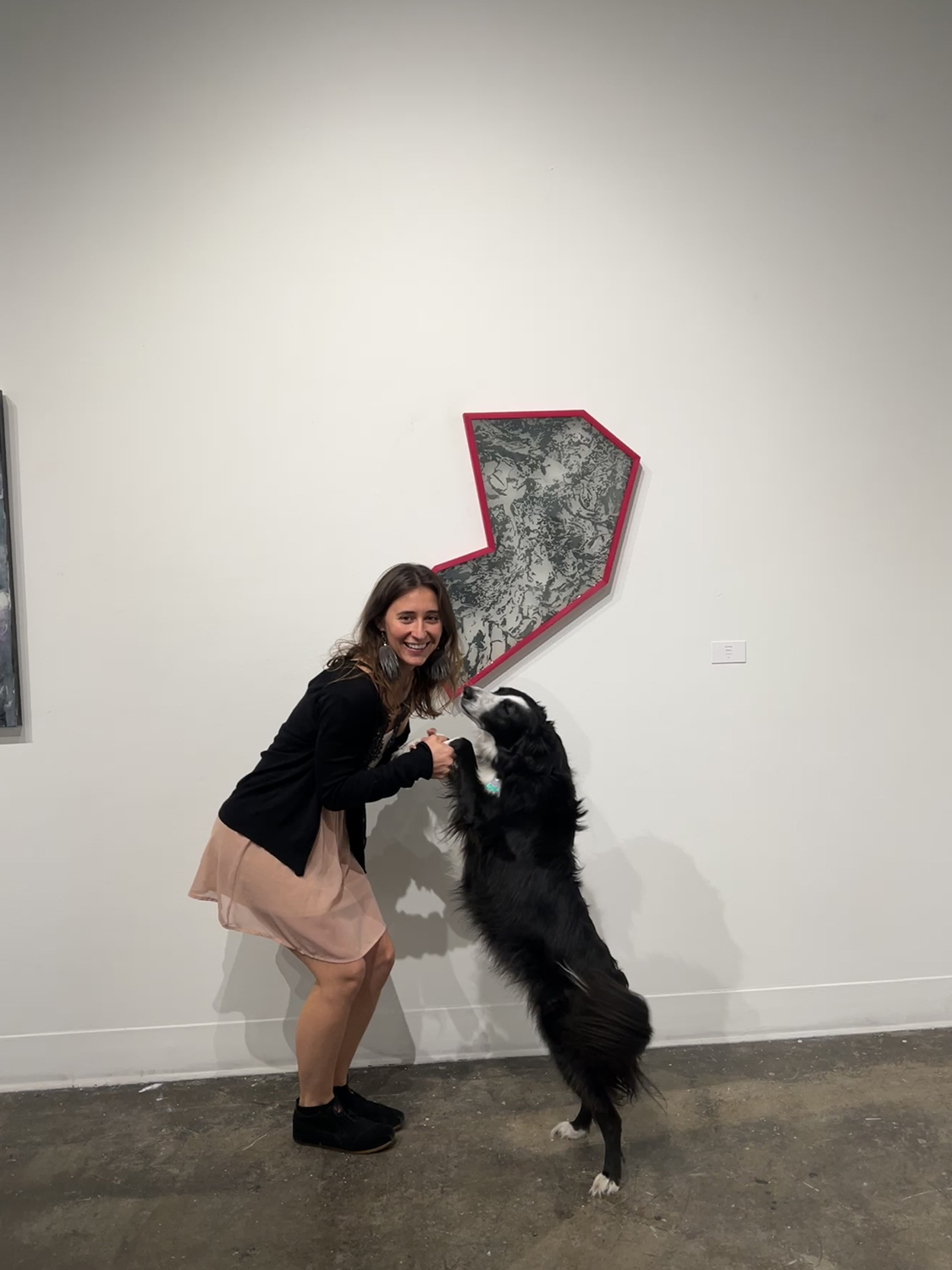Cognitive Cryogenics
Photos courtesy of Sasha Bitzer & Ayona-Reily Dixon
From October 21 through November 1, the UAF Art Gallery will present Cognitive Cryogenics, an exhibition by artists Sasha Bitzer and Ayona-Reily Dixon funded by a University of Alaska Fairbanks URSA Mentor Award. This compelling showcase connects Alaska’s glacial landscapes with human emotions and values, inviting viewers to deepen their understanding of human-environment relationships through metaphor and visual art.
Over the past year, Bitzer and Dixon explored Alaska’s glaciers as both inspiration and teacher. Supported by URSA, they traveled across Alaska’s glacial environments, observing and reflecting to gather inspiration. The resulting works embody a “language of materials” that Dixon describes as guiding their visual representation of the lessons embedded in these enigmatic ice formations. Dixon notes that the project’s design allowed them to “slow down, experiment and focus,” which enabled creative connections to emerge naturally. Through abstract forms, organic textures, and atmospheric palettes, their work portrays glaciers as both landscape and life teacher.
Bitzer highlights the impact of immersive experiences on the conceptual evolution of the project, saying, “During this project, we set aside time for reflection and discussion after immersive experiences, which led to exciting conceptual connections that fueled the artwork.” She describes the glaciers as “leaders and teachers” that offer wisdom and foster “perspective shifts as we learned more about ourselves and our relationship with our environment.” The works use natural forms to frame universal human experiences, resonating on both personal and collective levels.
This project, supported by the URSA Mentor Award, reflects the importance of mentorship within the UAF arts community. Bitzer aimed to create an in-depth, hands-on learning experience, “engaging with Alaska glaciers and bringing them into a visual dialogue through a lens of learning and appreciation.” The award enabled a collaborative process that empowered both artists, providing rich learning experiences within fine art.
Bitzer describes the value of this mentorship, saying, “Investing time and effort into including students in projects you are passionate about may turn out to be the most rewarding part of your project. The URSA mentor award allows ideas to be cultivated with students in a way that promotes learning and deeper exploration for both the mentor and the student.” Through these extended collaborations, students witness the processes, perseverance, and creative problem-solving necessary to create cohesive, meaningful art.
For those in the UAF community, Cognitive Cryogenics is a remarkable chance to reflect on the meaning of place, environment, and humanity’s evolving relationship with nature. The exhibit continues until November 1 in the UAF Fine Art Gallery. The works and stories captured in Cognitive Cryogenics offer new perspectives on glaciers and life in Alaska, ultimately inviting us all to consider our own “perspective shifts” in this remarkable setting.
URSA Awards
URSA (Undergraduate Research and Scholarly Activity) at UAF provides funding and opportunities for student research and creative scholarship, offering students the chance to work closely with faculty and contribute to academic and artistic projects across diverse disciplines. For students and mentors alike, these projects foster curiosity, critical thinking, and hands-on experience, which can be transformational both academically and personally. URSA’s Mentor Awards are currently accepting applications for the Spring cycle, with a deadline of November 3. Through these awards, students and faculty work side-by-side on projects that inspire new ways of thinking and a deeper appreciation for learning and discovery.
